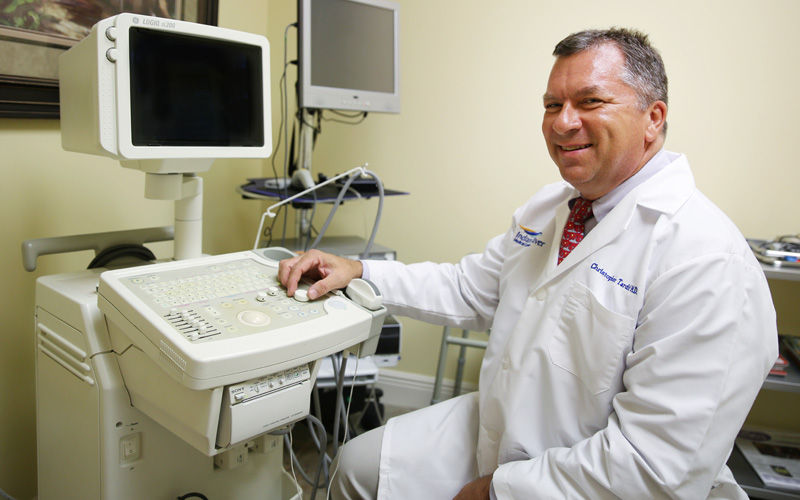What did the former segregationist governor of Georgia, Lester Maddox, have in common with the Black Panther Party’s “honorary prime minister,” Stokely Carmichael?
Here’s a hint: It’s the same thing that the actor and former National Rifle Association spokesman, Charlton Heston, shared with the late psychedelic LSD guru, Timothy Leary.
The answer? They all died from or with prostate cancer.
According to the American Cancer Society, approximately 233,000 new cases of prostate cancer will be detected in the U.S. this year and about 29,000 American men will die from it. Indeed, one in seven American men are likely to be diagnosed with prostate cancer at some time during their lives, making it the second most common form of cancer among men. (Skin cancer or melanoma is the most common cancer in men.)
Ah, but prostate cancer is a tricky disease. Sometimes prompt action is called for. Other times, the best thing to do is (almost) nothing. Unlike cancer of the breast, lung or colon, prostate cancer tends to metastasize or grow and spread to other parts of the body much more slowly.
Indian River Medical Center’s Dr. Christopher Tardif knows this. A board certified urologist who served both his internship and residency at Washington, D.C.’s George Washington University Hospital, Tardif has been with IRMC since 2000 and while his specialty is urology, he also seems well-versed in and open to the mind-numbing array of treatment options now available when prostate cancer is found.
He’s also well aware of the problems with the most commonly used method to detect it.
(A little textbook background here: The prostate gland is walnut-sized part of the male reproductive system which produces up to 70% of the volume of fluid in the male ejaculate. Exactly what causes prostate cancer is, frankly, not known. Age, family history, race and a few other factors appear to play a role but there simply is no definitive answer as to why the disease is so common. The most commonly used method for detecting cancer of the prostate is the Prostate Specific Antigen (PSA) test. These PSA tests, however, have come under heavy fire recently. Developed back in the 1980s, the Mayo Clinic now reports that only “about one in four men with a positive PSA test turns out to have prostate cancer.”)
Dr. Tardif understands. “The guidelines,” for interrupting PSA results he says, “are constantly changing. The American Urology Association just came out with their guidelines in 2013 and now they’re getting ready to change them again.”
It’s easy to understand his concern. No doctor likes to give any patient a cancer diagnosis and to some patients, a diagnosis of prostate cancer seems like a “blow below the belt.” After all, the most commonly used treatments for prostate cancer carry a high risk of causing erectile dysfunction as well as urinary incontinence.
Still, there is near universal agreement that men over 50 should be tested.
One of the more encouraging new trends in the treatment of prostate cancer is the realization that, particularly in men over 65, little or nothing may need to be done right away. The terms “watchful waiting” and “active surveillance” have entered the cancer lexicon meaning that the condition should be monitored but no surgical or radiation procedures need to be undertaken right away.
That said, in more advanced cases, there are a slew of surgical procedures including the radical prostatectomy, the retropubic prostatectomy, the perineal prostatectomy, the pelvic lymphadenectomy and transurethral resection of the prostate.
External beam radiation and internal (brachytherapy) seed implants, Cryotherapy, (freezing all or parts of the prostate) and hormone therapies are also on the menu.
Dr. Tardif recommends a thorough and frank discussion of all the available options before patients make their decisions. He also cautions about the “too good to be true” promises being made on various social media outlets.
“My thought about most “natural” cures or holistic-type things is that number one, they’re not regulated. They can claim anything they want and most of them have not been tested to see if they do the things they say they do.” Some can even do far more harm than good.
Still, while any cancer is serious business, Tardif is enthusiastic about ever-improving treatments available now and in the near future.
Indeed, he seems to embrace the words of the famous British surgeon, humorist and humanitarian, Dr. Robert Buckman who wrote that “cancer is a word, not a sentence.” An early diagnosis of prostate cancer today certainly needn’t be a death sentence to anyone, anymore.

